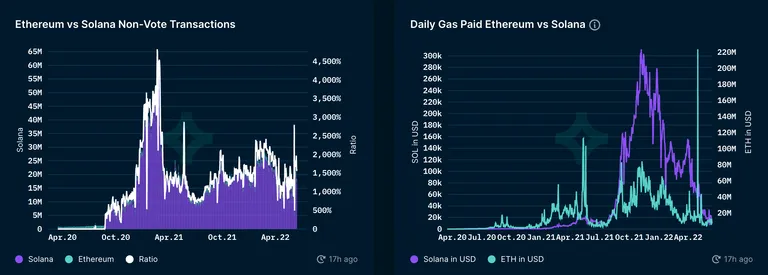Transaction speed
DISCLAIMER
These is a page taken from the legacy documentation. It is here for historical purposes only.
The Importance of Transaction Speed in Arbitrage Trading
Arbitrage trading involves buying and selling assets on different platforms, which requires the validation of transactions on the blockchain. The speed at which transactions are processed can significantly impact the success of arbitrage trading. If it takes too long for transactions to be confirmed, the market may move against the trader, making the arbitrage opportunity less profitable or even resulting in a loss.
Factors That Determine Blockchain Transaction Speed
The transaction speed of a blockchain is determined by several factors, including:
-
The number of transactions it can process per second (TPS)
-
The complexity of the transactions being processed
Some blockchains, such as Bitcoin, have relatively slow transaction speeds compared to others, which can make them less suitable for arbitrage trading. For example, it can take anywhere from 10 minutes to an hour to confirm transactions on the Bitcoin blockchain, which may not be fast enough for arbitrage purposes.
Maximizing Success in Arbitrage Trading
To maximize their chances of success, arbitrage traders should seek out blockchains with high transaction speeds and those that are not prone to network congestion. These blockchains can process transactions faster, allowing traders to take advantage of market discrepancies before they disappear.
It is also important for traders to consider the fees associated with executing trades on different blockchains, as these can impact the profitability of their arbitrage strategies.
Solana: A High-Performance Blockchain for Arbitrage Trading
Solana is a decentralized blockchain platform that is highly regarded for its fast transaction speeds and low fees. It is designed to process up to 65,000 transactions per second (TPS), with a theoretical potential to reach 710,000 TPS in the future. This makes it a strong contender to centralized systems in terms of speed and efficiency.
In terms of real-world performance, Solana has consistently demonstrated its ability to handle high volumes of transactions. It has processed up to 1,900% more transactions than Ethereum, while charging significantly lower fees to users. At its peak, Solana has even processed over 4,800% more transactions than Ethereum.
These high speeds and low fees make Solana an attractive platform for a wide range of applications, including decentralized finance (DeFi), gaming, and cryptocurrency arbitrage. Its scalability and efficiency make it well-suited for high-volume transactions and the demands of fast-moving markets.

